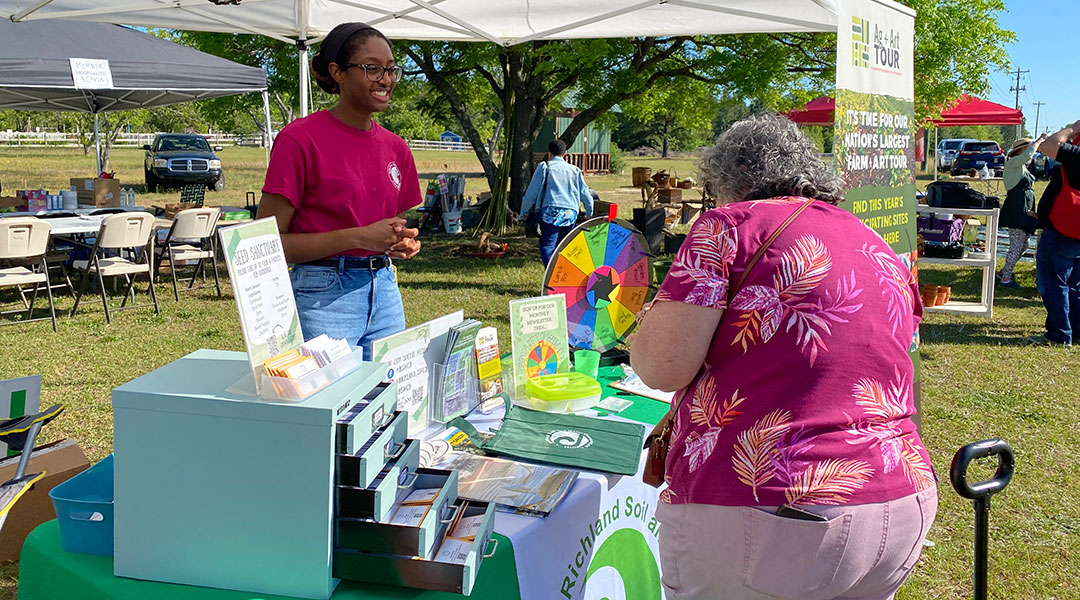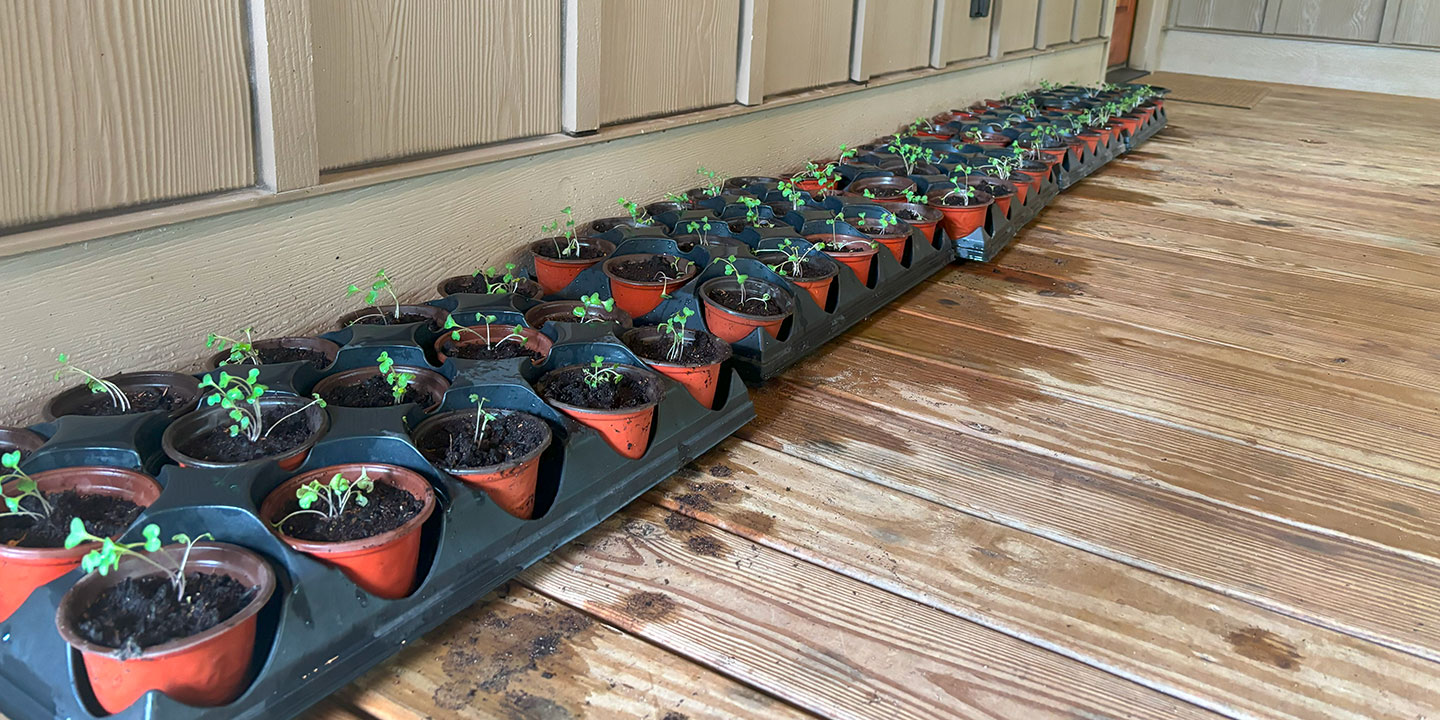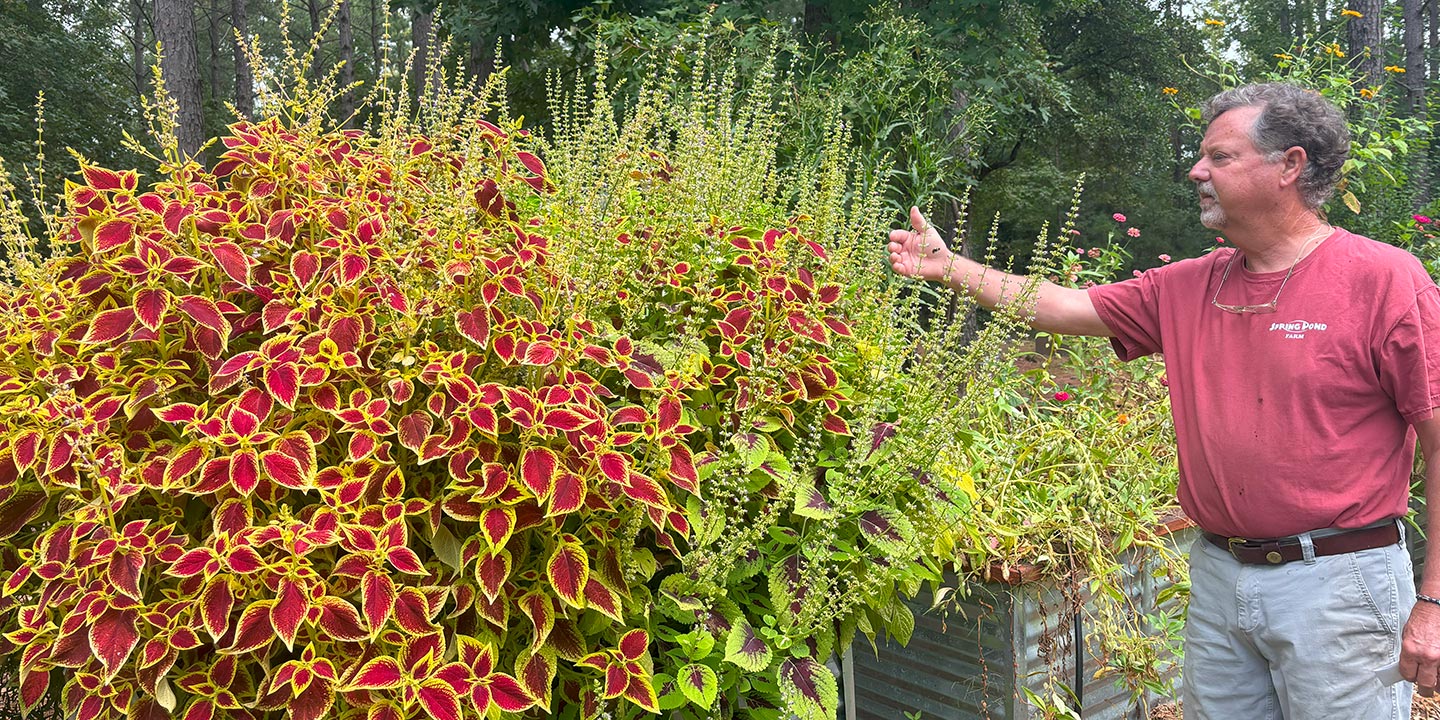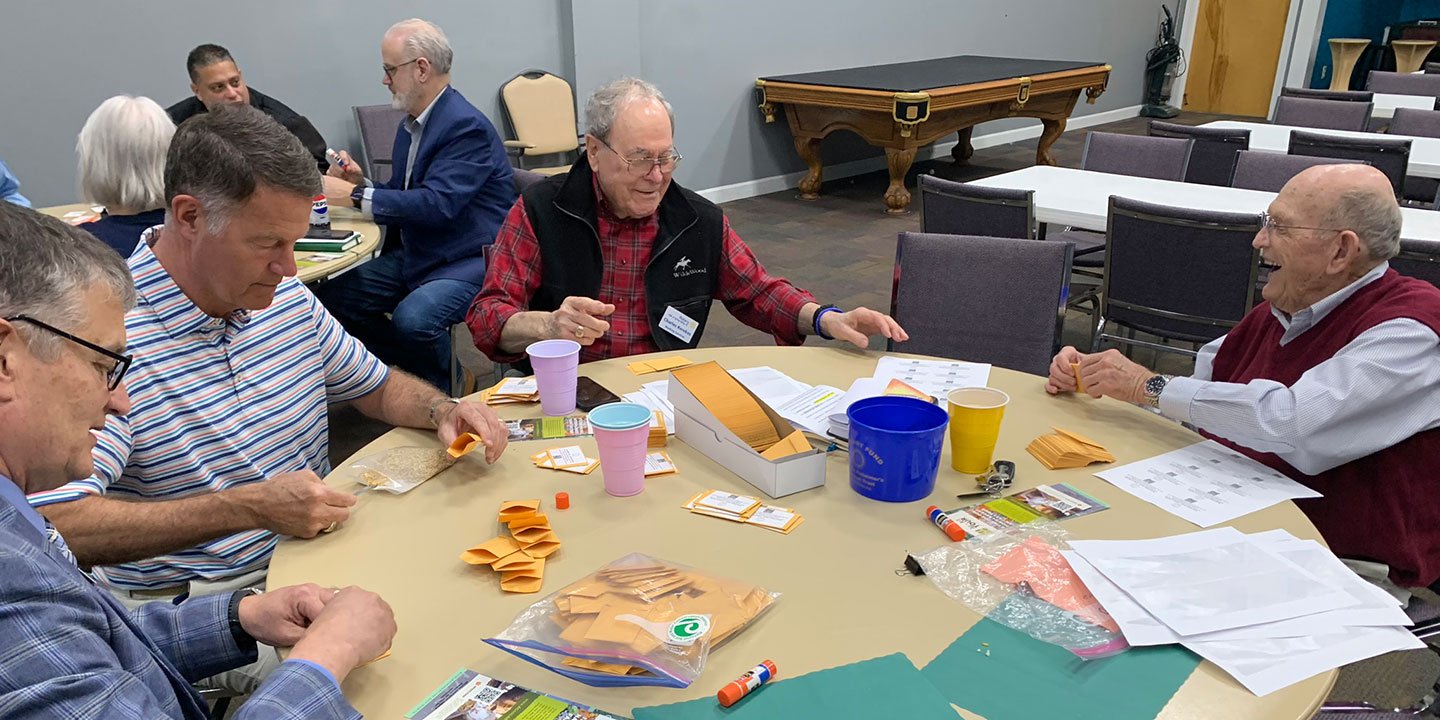Chelsea Holliday speaks to a community member at a pop-up event for the Richland County Master Gardener Association. (Photo courtesy of Chelsea Holliday/Carolina News & Reporter)
On Lynn Derrick’s porch, there’s Jimmy Buffet playing on the speaker, a hammock overlooking his pond and cauliflower. Lots and lots of cauliflower.
Derrick is a Richland County master gardener and knows a thing or two about plants. But he’d never seen as much initial success until he planted that cauliflower.
“I’ve never had 100 percent germination,” he said. “That’s 650 seedling plants. That’s unbelievable.”
And all 650 of those plants came from a packet of free seeds.
Derrick got the seeds through the Richland Soil and Water Conservation District’s Seed Sanctuary. The district gives seeds to individuals, schools and community gardeners to promote food security, pollinator health and home gardening. What’s available changes seasonally.
People can access seed sanctuaries in person at local county buildings, by mail or at pop-up events across the county.
Derrick works with the district at one of those pop-up booths. He goes to Soda City Market one Saturday a month with other master gardeners to give out seeds and provide gardening advice. The booth gave out 500 seed packets to over 140 people in August.
Jane Hiller, a member of the Environmental Education Association of South Carolina board of directors, recently planted dill with seeds from the program.
“I think it just really encourages people to go home and plant something,” Hiller said. “I mean, people that have not planted before, or people that haven’t planted in a while, or even those of us who plant all the time. There’s always room to grow.”
Jennifer Mancke, another member of the board, said gardening goes beyond putting seeds in the ground.
“We need to appreciate the Earth more and take care of it better,” Mancke said. “And gardening is a great way to understand the importance of that for our future.”
As the district’s Green Steps school mentor, she has seen the impact of the program in helping children understand that importance. She works with local schools to build gardens, using the free seeds and grants from the district.
They learn about the significance of land quality, water access – and self sufficiency in the process, she said. And the students leave with a new appreciation for their planet.
“There’s almost never been a time that I go into one of these situations where kids are not interested, where they don’t end up very enthusiastic by the end of the project.” Mancke said.
The free seeds give students an opportunity to get hands-on experience learning where their food comes from, said Mary Burts, a commissioner for the Richland Soil and Water Conservation District.
“It’s getting them off the page and off the tablet and into what’s important,” Burts said.
And the hands-on learning begins before seeds are even given away.
At “packing parties,” volunteers pack the seeds into small envelopes with planting instructions. They also sit around tables, talk and learn about each other as humans.
It’s the kind of multitasking that makes volunteering fun, said Chelsea Holliday, the district’s administrative assistant of outreach and community engagement.
“Sometimes you go and volunteer and you do a good thing, which is awesome,” Holliday said. “But sometimes you want to meet someone, or sometimes you want to just spend time with other people and get to know someone else. And so with this particular sort of project, you’re able to do that.”
Burts has seen members of a local retirement community talk for hours about their childhoods at packing parties.
She’s seen kids take pride in what they’ve grown.
She’s seen the community reap what the Seed Sanctuary has sown.
“It’s not just about the seeds,” Burts said. “If you think about it, the seeds are growing togetherness. They’re nurturing all of us in more ways than just the final product. That’s why we just love it.”
Lynn Derrick’s cauliflower plants sit in the shade on his porch. (Photo by Sydney Zulywitz/Carolina News & Reporter)
Lynn Derrick reaches for a bee in his pollinator garden. (Photo by Sydney Zulywitz/Carolina News & Reporter)
Members of the Spring Valley Rotary Club at a seed packet “packing party.” (Photo courtesy of Chelsea Holliday/Carolina News & Reporter)





